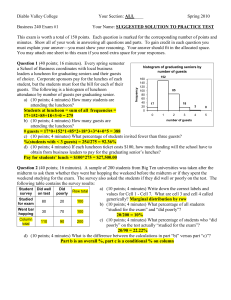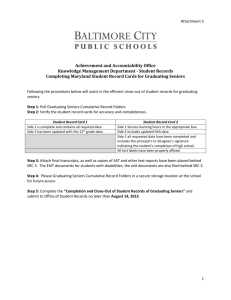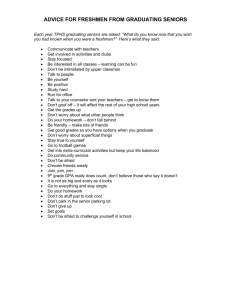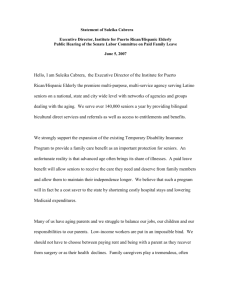The following questions are examples of exam questions for chapter 2
advertisement
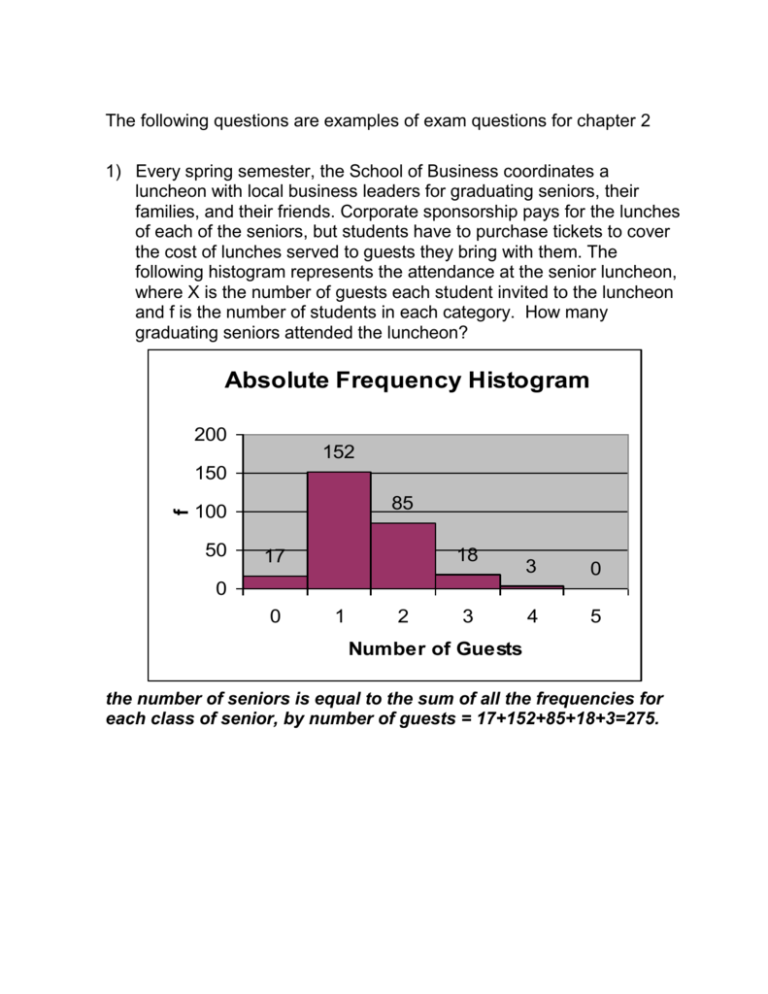
The following questions are examples of exam questions for chapter 2 1) Every spring semester, the School of Business coordinates a luncheon with local business leaders for graduating seniors, their families, and their friends. Corporate sponsorship pays for the lunches of each of the seniors, but students have to purchase tickets to cover the cost of lunches served to guests they bring with them. The following histogram represents the attendance at the senior luncheon, where X is the number of guests each student invited to the luncheon and f is the number of students in each category. How many graduating seniors attended the luncheon? Absolute Frequency Histogram 200 152 f 150 85 100 50 18 17 3 0 4 5 0 0 1 2 3 Number of Guests the number of seniors is equal to the sum of all the frequencies for each class of senior, by number of guests = 17+152+85+18+3=275. A professor of economics at a small Texas university wanted to determine what year in school students were taking his tough economics course. Shown below is a pie chart of the results. What percentage of the class took the course prior to reaching their senior year? Seniors 14% Juniors 30% Freshmen 10% Sophomor es 46% 86% of students (100%-14%) took the course before their senior year The Stem-and-Leaf display below contains data on the number of months between the date a civil suit is filed and when the case is actually adjudicated for 50 cases heard in superior court. Stem 1L 1H 2L 2H 3L 3H 4L 4H 5L 5H 6L 6H Leaves 23444 7899 222234 55678889 001113 5778 0234 5579 1124 66 1 58 Note: 1L means the "low teens"Ñ10, 11, 12, 13, or 14; 1H means the "high teens"Ñ15, 16, 17, 18, or 19; 2L means the "low twenties"Ñ20, 21, 22, 23, or 24, etc. a) Locate the first leaf, i.e., the smallest leaf with the smallest stem. This represents a wait of ___12____ months. b) The civil suit with the longest wait between when the suit was filed and when it was adjudicated had a wait of ___68___ months. c) The civil suit with the fourth shortest waiting time between when the suit was filed and when it was adjudicated had a wait of ___56___ months. d) What percent of the cases were adjudicated within the first 2 years? 15 / 50 = 30% 4) The table below contains the opinions of a sample of 200 people broken down by gender about the latest congressional plan to eliminate anti-trust exemptions for professional baseball. 38 12 54 36 12 48 Row Totals 104 96 50 90 60 200 For Neutral Against Female Male Column Totals a) How do you construct a table of total percentages? By dividing all frequency counts for each gender-opinion pair by 200, which is the grand total number of responses b) Of those neutral in the above sample, what percent were males? 36/90 = 40% c) What percent of the 200 were females who were either neutral or against the plan? (54 + 12) / 200 = 33% d) What percent of the 200 were males who were not against the plan? 100% - (48/200) = 76%
